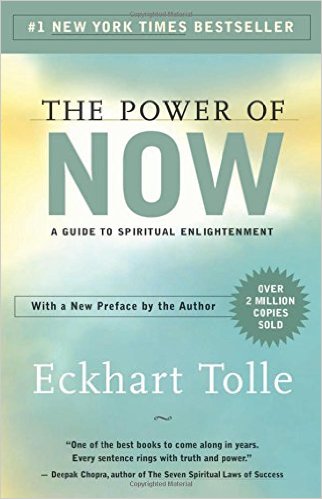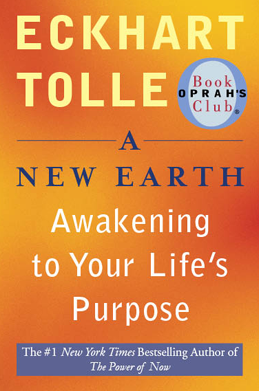|
Word Gems
exploring self-realization, sacred personhood, and full humanity
Editor's 1-Minute Essay:
Belief, Trust, Faith
return to "Belief" main-page
As I surveyed internet quotations for "believe," it became apparent that there would be no shortage. Some sites boasted hundreds of aphorisms, and one featured more than a thousand.
Upon closer inspection, however, with the exception of the quotations from Carl Jung, it became obvious that most of these constituted "pep talks" and "cheer-leading" efforts, motivational slogans, and hype to prop up sagging mental outlooks; for example - "If you don't believe in yourself, no one else will"; or "If you don't feel it, start by believing it, and the reality will follow"; or "Begin each day by repeating, 'I can do it,' several times."
Is this the essence of what it means to "believe"? I submit that if you employ these common methods, you will end up feeling more empty and out-of-control on the inside.
|

"There is no use trying," said Alice; "one can't believe impossible things."
"I dare say you haven't had much practice," said the Queen. "When I was your age, I always did it for half an hour a day. Why, sometimes I've believed as many as six impossible things before breakfast."
Lewis Carroll
|
|
Channeled testimony via the mediumship of William W. Aber; presented in the book “The Dawn Of Another Life” by William Denton:
A spirit-entity on the other side discusses worldly belief:
“There can be no faith without freedom. It is not faith to attempt or pretend to believe the things which you are told you must believe. Even to seek to comply is to prove your fear rather than your faith, your apprehension of some dreaded consequence attendant on failure to conform.
“To say, ‘I believe,’ lest a catastrophe attend the honest denial of such belief, is to play the liar and the coward.”
|
a 1-minute essay on "believe"
It will be my purpose to address this issue in an expeditious way; as such, I will offer some general principles and then leave it to you to "fill in the blanks" with information from other articles on the Word Gems site.
the most important precept I would have you understand: those who know have no need to believe
David Hume, the great Scottish philosopher, was one of the few to actually define "belief" and credibly so:
“Belief is nothing but a more ... forcible, firm, steady conception of an object, than what the imagination alone is ever able to attain.”
"Believe" is what most people do when they don't "know." To "believe" is to grit the teeth and try with one's might to offer mental assent to some proposition that one's inner person is rejecting. This mind-game subsumes the advice given by the Queen of Hearts to Alice.
|

"Empty your mind, be formless, shapeless, like water...[success is] not being tense, but ready... not being set, but flexible... it is being wholly and quietly alive, aware and alert, ready for whatever may come... be water, my friend."
|
To "believe," in its popular conception, is to reject the success-teaching of the "zen master" Bruce Lee; it is to be rigid; it is to live a lie, to posture certainty when the "red flashing warning-lights" of doubt blast us; it is to proclaim "I know" when we understand very well that the opposite is true - the blustering of the Queen of Hearts, notwithstanding.
Jesus said that we will be "set free" when we "know the truth" not when we "believe the truth."
To "believe" is to "plant the flag," to disingenuously proclaim success and certitude while fear and misgiving consume us - all this is patent dysfunction and leaves us in a worse condition.
we're not supposed to have any beliefs or plant any flags
We are to learn to live with partial answers; we are to accept that our knowledge will always be incomplete - true tomorrow and a million years from now; and whatever conclusion we might draw today from the present data must always be labeled "tentative - pending further light." And there's always more light to come; that is, if we live as Bruce suggests, "wholly and quietly alive, aware and alert."
but aren't the sayings about "believing in ourselves" just good motivational advice
There is a small bit of truth here; of course, a positive mental attitude is always of value. But when we step over the line into playing a role and wearing a mask, it all quickly devolves to something pathological.
Here's the important point:
We don't have to "believe" in ourselves when we come to "know" ourselves. One of the greatest points of wisdom from the ancient world is offered to us via Socrates (referencing the proverb at Delphi) - "Know Thyself," not "Believe in Thyself."
What does this really mean?
As we grow into a better level of consciousness, as we discern and access the True Self, we will come to know ourselves to a degree presently unrealized. In this sacred knowledge of the true self, it becomes easy to "believe" and "trust" in ourselves. At this stage, a sense of duality and dichotomy is reduced - no longer is there an "I" who is required to believe in "oneself." We simply become ourselves, our true selves, and live an integrated, unified life.
Consult Eckhart's books as to the particulars:
"the afterlife changes everything"
Hopefully, you've seen this phrase and have begun to learn of its high moment. When we transition to the other side, one of the first orders of business will be that of purging ourselves of errant Earth-attachments, primarily of the psychological kind - our fears, beliefs, and base habits. Until we do this, we will not be able to enjoy all that Summerland has to offer.
Our healing and therapy can begin now by acquiring as few beliefs as possible.
believing in another person: self-respect with training wheels
Postscript: Allow me to slightly modify one of my statements. We can help each other with encouraging words and affirmations of worth, especially until people become strong enough to access their own "inner riches." I appreciate very much the following advice by Mortimer Adler:
"Many persons first realize their own essence and worth in loving and being loved by another person. Cynics and pundits call such personal knowledge in erotic love 'idealization' or 'over-valuation' of the love object. But perhaps what they call 'idealization' is simply realization of [that is, believing in] what exists potentially in the beloved person and is first actualized in love."
|
Editor's last word:
On the "Belief" main-page, as heading to the Carl Jung quotations, I stated,
the biblical Greek word commonly translated "faith" or "believe" is often better rendered "trust"; we are to trust, not in words, not in hearsay evidence, not in fulminations of infallible gurus, not in second-hand revelations, but in a personal experience with the Divine - on this we are to build our lives, now and eternally
But we want to ask: How does one go about accessing a personal encounter with Divinity?
I can't tell you how; no one can. The soul has its own agenda and, when it's ready, will not ask the ego or surface-personality for permission to act. But, that acknowledged, the advice of Eckhart Tolle (see his books) will be helpful. I suspect that receipt of such marvel is meant to be the norm not the exception. It's just a matter of time before it comes to each of us. That which befell the apostle Paul, as Jung points out, is to be the common standard; which is not to say that we'll need to be knocked off a horse by a bolt of lightning, with a parade of saints overhead.
One moment of cosmic clarity and blazing insight; one piercing instant of Anne of Green Gables' "open book of Revelation"; a sudden and cataclysmic quieting of the egoic "monkey mind"; a defining point in time so shattering to private paradigms, so destabilizing to traditional modes of thinking, long cherished from childhood and heritage; that - to borrow a phrase from Paul who had known it first-hand - we become "a new creation," virtually, a new person, with new existential orientations, new directives. In this mystical encounter with elements of the Celestial and the Divine, a veritable empyreal perception of Love itself, we are meant to trust, solidly trust, and, upon which, to build our entire future lives, now and a million years hence. The memory of this event never leaves one's spirit.
My words here represent no theory. This happened to me, nearly 30 years ago; and, even this moment, if I allow it, I still inwardly shake to recall the incident. Jung is absolutely correct. And how tawdry and barren, how empty and hollow, by comparison, is Big Religion's commandment "to believe."
On the "Intuition" page, I offered,
If you begin to trust yourself and leave behind dogma, the pre-packaged thinking of others; if you learn to cultivate the soul-forces within; if you honor the “still small voice,” the solitude of silence, the inner vibration; if you devote yourself to the refinement of the spirit and the pursuit of knowledge and understanding; you will enter a world of magical perception, unbounded by the four-dimensional concerns of time and space.
"Ever desireless, one can see the mystery; ever desiring, one sees only the manifestations. And the mystery itself is the doorway to all understanding." The Tao Te Ching, the first verse
It is living in “the mystery,” living in “the joy”...
This living in "the mystery" and "the joy," this personal encounter with the Celestial and the Divine, it becomes clear to me, is, or will become, our normal way of living. It is how we shall find God and, eventually, unravel the secrets of the universe.
The memory of that initial communion with the Divine, which coming might be wholly unexpected and even unwanted, but in which we shall ever trust, will serve as basis and catalyst for all subsequent knowledge acquisition; that is, anything worth knowing.
All understanding, all wisdom, all vision of love, will flow from that original instantaneous "meeting" with God. Truth does not come "through the gradual change of [experience, but] only through immediate perception, immediate discernment, lies the whole of wisdom.”
Yes, all this will naturally stream from that "original instantaneous 'meeting' with God"; however, the interview might be arranged by God's agent, one's Twin Soul, a particular one "made in the image." "God's agent" is the literal meaning of the term "Christ," which office each of us is meant to share; albeit, at times, unwillingly, even as we, as has been said, are "dragged kicking and screaming into the kingdom of God." Until that "open book of Revelation," we exist, not live, in an unconscious state, blinded, utterly unaware that we currently reside in hell.
|
|



